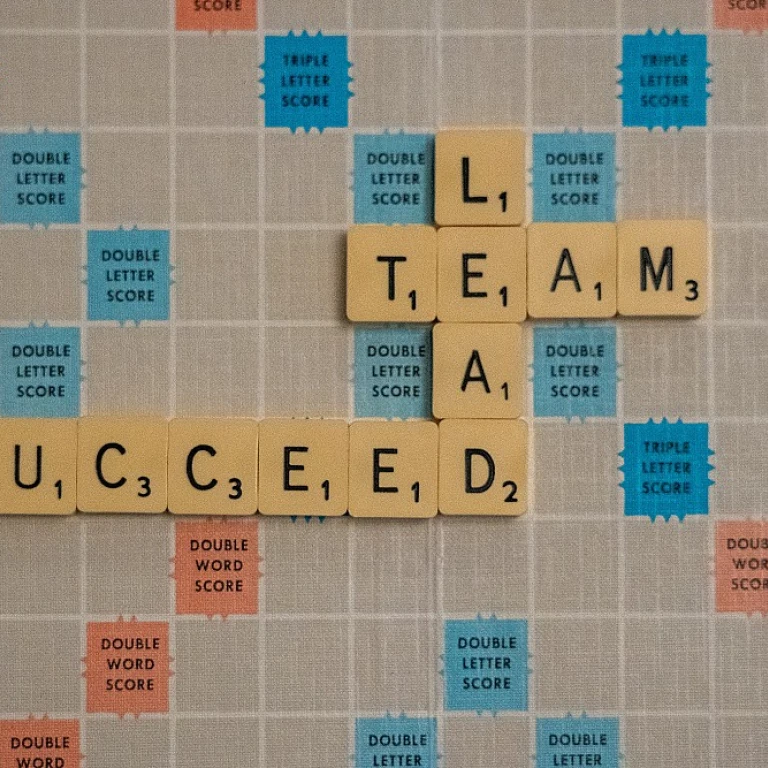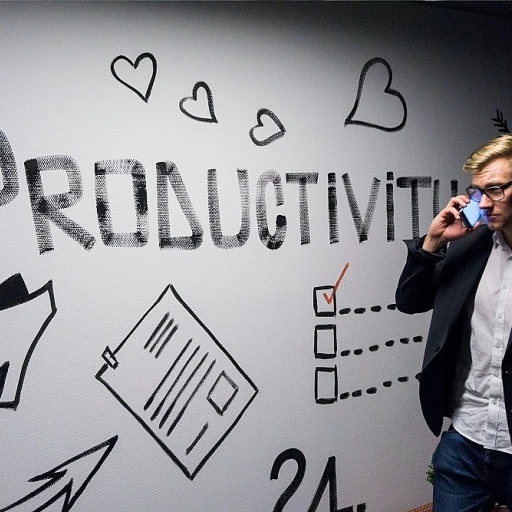-teaser.webp)
The Core Responsibilities of a Human Resources Generalist
Key Duties and Responsibilities
The role of a Human Resources Generalist is multifaceted, encompassing a wide range of responsibilities that are crucial for the smooth operation of any organization. At its core, the generalist job involves managing employee relations, ensuring compliance with employment laws and regulations, and supporting the overall business operations. This requires a deep understanding of human resources policies and procedures, as well as the ability to act as a business partner to various departments.
Employee Relations and Communication
One of the primary responsibilities of a human resources generalist is to foster positive employee relations. This involves addressing employee concerns, mediating conflicts, and ensuring that the work environment remains conducive to productivity and development. Effective communication skills are essential in this role, as generalists must convey policies and procedures clearly and empathetically to employees and management alike.
Training and Development
Another critical aspect of the generalist role is overseeing training and development initiatives. This includes identifying training needs, coordinating development programs, and evaluating their effectiveness. By investing in employee development, HR generalists help enhance the skills and capabilities of the workforce, contributing to the organization's long-term success.
Compensation and Benefits Management
Managing compensation and benefits is a key responsibility for HR generalists. They must ensure that the organization's compensation structure is competitive and aligns with industry standards. This involves conducting salary surveys, developing benefits packages, and overseeing performance management systems. By doing so, they help attract and retain top talent, which is vital for business growth.
Compliance and Legal Responsibilities
Ensuring compliance with employment laws and regulations is a critical part of the HR generalist's job description. This includes staying updated on changes in labor laws, implementing necessary policy changes, and conducting regular audits to ensure compliance. By maintaining a thorough understanding of legal requirements, HR generalists protect the organization from potential legal issues.
For more insights on how HR evaluates job abandonment risks before hiring, you can explore this resource.
Skills and Qualifications Required for Success
Key Competencies for Thriving in the HR Generalist Role
To effectively carry out their responsibilities, human resources generalists must exhibit a robust set of skills and qualifications. A solid educational foundation, often a bachelor’s degree in human resources, business, or a related field, is typically required. This, combined with hands-on experience in HR functions, forms the backbone of a skilled HR generalist. Building on this foundation, certain key competencies stand out for generalists aiming to excel in their work environment:- Comprehensive Knowledge of HR Laws and Regulations: A critical aspect of the generalist job is navigating the complex web of employment laws and regulations. Mastery in this area ensures adherence to legal requirements, safeguarding the organization and its employees against potential disputes.
- Strong Communication Skills: Effectively managing employee relations and acting as a business partner requires HR generalists to possess exemplary communication skills. This empowers them to handle interview questions, conduct training development sessions, and draft clear policies and procedures.
- Proficiency in Employee and Performance Management: HR generalists play a vital role in managing employee performance and implementing development programs. Understanding compensation and benefits structures, combined with strategic performance management, underpins the success of these initiatives.
- Adaptability and Problem-Solving Skills: The dynamic nature of the human resources landscape means generalists must be adaptable, ready to tackle challenges head-on. Whether addressing daily HR issues or dealing with broader organizational changes, problem-solving capabilities are indispensable.
- Experience in HR Management Tools: Familiarity with management information systems and tools used in HR practices enhances a generalist's ability to efficiently handle resources, track employee metrics, and contribute strategically to business operations.
The Role of HR Generalists in Workforce Planning
The Critical Involvement of HR Generalists in Workforce Planning
Human resources generalists play a pivotal role in the intricate dance of workforce planning. By connecting human resource functions with business operations, they bridge the gap between resources specialists and business needs. Their role requires a deep understanding of business goals and how effective workforce planning can drive organizational success. The generalist job often involves assembling data on current employee resources and understanding trends in employment. This includes analyzing existing job descriptions to ensure they align with organizational objectives. An HR generalist's responsibilities often extend to forecasting future staffing needs based on business development plans, assisting in employee training development, and adjusting employment strategies to accommodate anticipated changes in the work environment. Moreover, generalists form a vital part of performance management and compensation benefits programs. Their insights help tailor policies procedures that support strategic business growth while fostering a positive employee relations environment. In workforce planning, the generalist's job is to leverage great communication skills to engage diverse stakeholders. They facilitate discussions that consider both existing employee skills and the potential benefits of bringing in new talent. By prioritizing resources effectively, HR generalists support business operations and serve as an indispensable business partner. As guidelines for human resources continue to evolve, generalists maintain awareness of laws regulations influencing employment practices. Their input not only secures the organization against compliance issues but also affirms their role as integral to aligning human resources with long-term strategic goals. For those interested in further enhancing workforce planning strategies, you can explore enhancing workforce planning with leadership development consulting to dive deeper into strategic approaches.Challenges Faced by Human Resources Generalists
Overcoming Obstacles in the HR Generalist Role
Human resources generalists play a crucial role in any organization, often juggling multiple responsibilities across various areas of human resource management. This multifaceted role can sometimes present unique challenges that require adept problem-solving skills and a strong foundation in human resources practices.
One common challenge faced by HR generalists is managing employee relations. Handling sensitive situations within the employer-employee dynamic demands excellent communication skills and a deep understanding of workplace policies and procedures. Effectively addressing conflicts, promoting positive work environments, and ensuring compliance with laws and regulations are all integral parts of this aspect.
HR generalists also encounter challenges in balancing their involvement in day-to-day business operations with strategic workforce planning. The generalist role requires a seamless blend of operational and strategic capabilities, often necessitating collaboration with specialists in areas such as training development and performance management. This balancing act requires resources generalists to continually adapt and develop versatile skills.
Furthermore, the evolving nature of employment laws and regulations adds another layer of complexity to the job description. Keeping up-to-date with these changes and understanding their implications for both the organization and its employees often demand continuous learning and professional development. HR generalists must ensure that they are well-versed in these legal frameworks to protect the organization and advocate for employees effectively.
In the realm of compensation benefits, generalists must navigate the intricacies of salary structures and benefits packages. Crafting competitive yet sustainable compensation plans requires a sharp understanding of market trends, employee expectations, and business capabilities. A bachelor degree in human resources or related fields can provide a critical foundation, but real-world experience often sharpens these skills over time.
Despite the challenges inherent in the HR generalist role, addressing them successfully can lead to significant contributions to business growth and employee satisfaction. With strong communication skills, critical resource management, and a proactive approach to learning, HR generalists can effectively support business development and organizational growth.
Best Practices for Effective Workforce Planning
Best Strategies for Efficient Workforce Structure
In the dynamic landscape of human resources, effective workforce planning stands as a cornerstone of successful business operations. Human resources generalists juggle an array of responsibilities, and mastering workforce planning is essential to enhancing overall productivity. Here are some best practices for effective workforce planning:
- Comprehensive Analysis: It is crucial to conduct a thorough analysis of current employment trends, business needs, and organizational objectives. This involves understanding the core skills and competencies required for each role to fulfill business goals efficiently.
- Continuous Training and Development: Offering ongoing training development programs not only keeps employees' skills relevant but also empowers them to embrace new challenges. Effective training ensures a flexible workforce adaptable to evolving business requirements.
- Employee Engagement: Fostering a work environment where employees feel valued and engaged enhances retention rates. Communication skills play a key role in building strong employee relations that benefit both the organization and its individuals.
- Collaboration with Specialists: Partnering with resources specialists can provide valuable insights into specialized areas such as compensation benefits, performance management, and employee relations. Generalists can draw on this expertise to make informed HR decisions.
- Leverage Technology: Implementing robust HR management systems aids in tracking employee data, analyzing job performance, and forecasting future workforce needs accurately. Technology streamlines processes and supports strategic business development.
By integrating these best practices, HR generalists can navigate the complexities of workforce planning, ultimately strengthening their organization's competitive edge.














